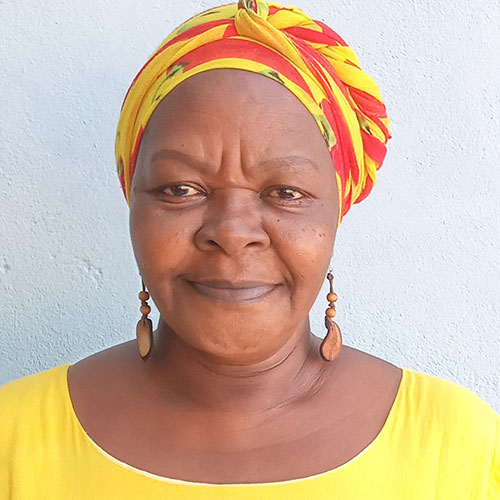Quilombola community inspires women through music and arts
On a part of the land that houses the former Hospital Colônia de Curupaiti, which was an asylum and prison for lepers, in Jacarepaguá, in the north of Rio de Janeiro, Quilombo Aquilah was born, from which Hosania Nascimento, dance teacher, choreographer, art and educator, she is the founder and executive coordinator


The climb to Quilombo is quite steep, but the landscape is worth the effort. Once you get up there, it’s an explosion of green. The environment is so invigorating that it makes you want to stare at the tree-lined sky the whole time. Within this quilombo, the Aquilah Women’s Association has been operating for over 30 years, of which the very friendly and welcoming Hosania is president.
The association is a collective of women, mostly black, but also serves light-skinned women. Coluna da Neuza was received for an interview during Hosania’s birthday party, which was celebrated in the quilombo space, with the presence of many happy people.
Coluna da Neuza: Why the defence and acceptance of black women?
Hosania: We, black women, have a difference: we are special because of our entire history of suffering and exclusion. We learn to live, grow and evolve within adversity. When everyone tells us it’s not possible, we go out there and prove it to be a lie.
Coluna da Neuza: What is the objective of the Aquilah Women’s collective?
Hosania: The collective works with a single ideal: taking care of the physical and mental health of the participating women, this is our main mission.
Coluna da Neuza: What are the activities?
Hosania: Here in this territory, we have an office with a general practitioner and some other specialities such as psychology, geriatrics and others; legal assistance to assist women and their families. In addition, we also have the Casa da Artesã.
Coluna da Neuza: What is the Artisan’s house?
Hosania: Casa da Artesã has 86 black women entrepreneurs and some men, all in the artisan network. The association’s struggle is to find possibilities for these people to display and sell their products at zero cost, if possible, or at least for a price that everyone can afford. We fight for public policies and seek partnerships so that artisans are able to sell their products with dignity.
The focus of the collective is black women, but it is not a condition. If a light-skinned woman arrives and needs help, she will be helped, because we are sisters, we are all women.
Physical and mental health
There is a physiotherapist certified by the SUS on site, who also gives courses, and lectures and provides holistic treatments. Auriculotherapy, chromotherapy, acupuncture and reflexology are also offered.
Hosania says that, although it is a women’s association, it is not a female-only space. For example, not all participants are single, and their husbands join them, joining together to help in the fights. Although the focus is on physical, mental and spiritual health, the association also has a segment within art, culture, leisure and entertainment.
Sustainability
“We hold specific events such as Feijoada de São Jorge, Feijoada dos Pretos Velhos, Festas Juninas, Black Consciousness Day, Popular Culture Festival, and sustainability comes from the cuisine sold during these festivities, a cuisine that is part of Zungu, Guia of Black Gastronomy in the City of Rio de Janeiro”.
“The association also holds a monthly Samba Circle with the aim of promoting and removing from invisibility the people who traced and paved the way for samba to be a musical genre known nationally and internationally today”.
Hosania explains that, in the past, some anonymous women, known as Pastoras do Samba, brought the sambas of composers from the hills and alleys to the asphalt and, thus, became known to the public.
At the time, women were so powerful that they only paraded in Praça XI, in the centre of Rio de Janeiro, with the sambas they liked and chosen by them. Because of this, they were treated like queens by composers.
Now, in honor, the Samba Circle is called Pastoras de Aquilah, and takes place monthly in the quilombo and other spaces
Locations of operation
The association operates within Quilombo Aquilah, where it has its main headquarters; in the historic centre Museu Bispo do Rosário, in Colônia Juliano Moreira, where the Casa de Projetos operates with training courses for women, aimed at generating income such as gastronomy, digital marketing, maid courses, among others; in Mallet Soares, on Rua Francisco Muzzi 286, there is a small experimental kitchen for the residents of that region.
Aquilah Women’s Association needs your support
You can help by donating non-perishable food, especially rice, beans, sugar, powdered milk and cooking oil; hygiene and cleaning material, which can be delivered to the quilombo on Thursdays.
Your donation will help ensure food security for several families in precarious situations.
The institution also needs volunteers in the Digital Marketing area, focused on social networks and technology in general.
To see the schedule of events or get more information, follow Quilombo Aquilah on Instagram.



